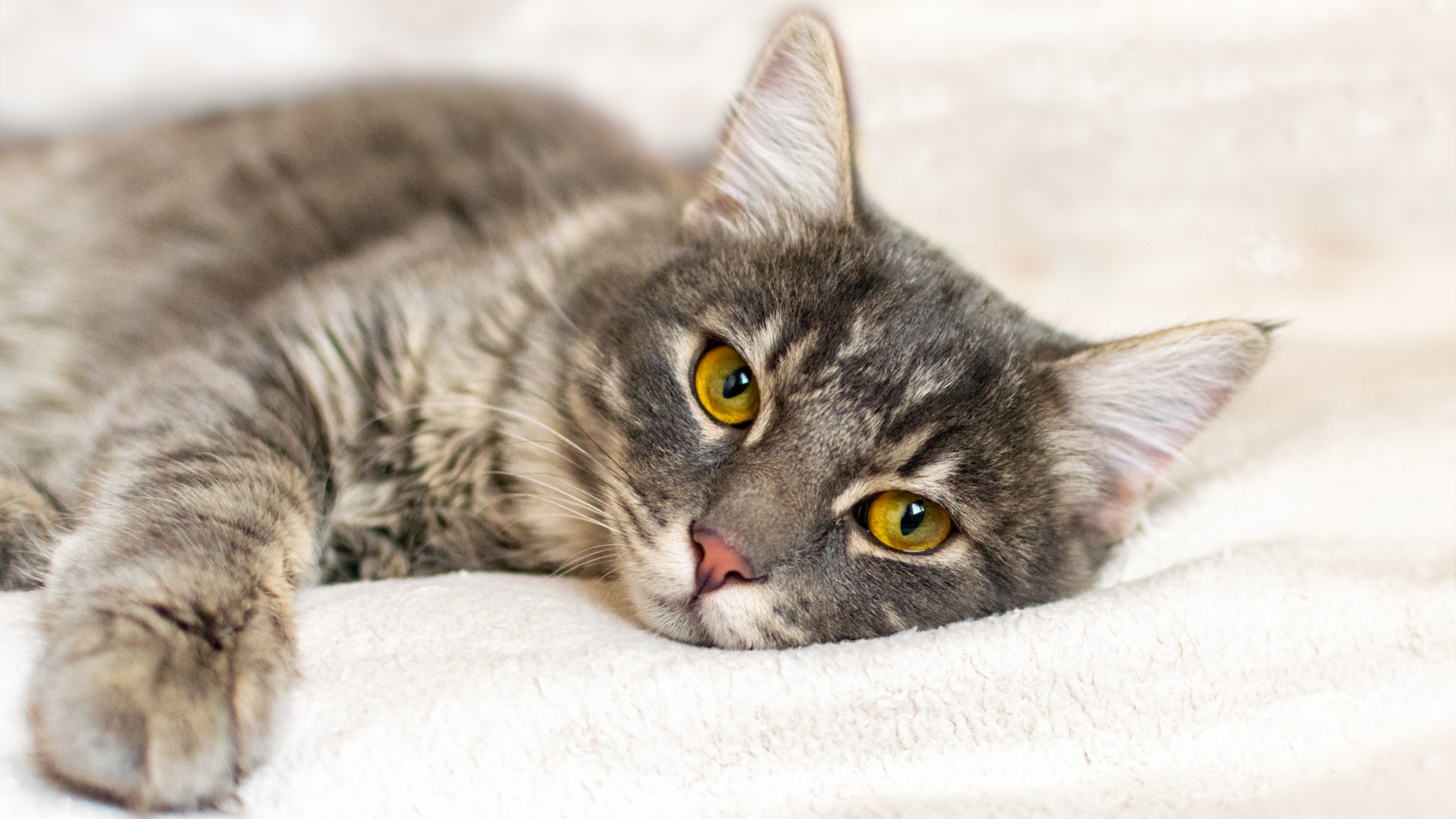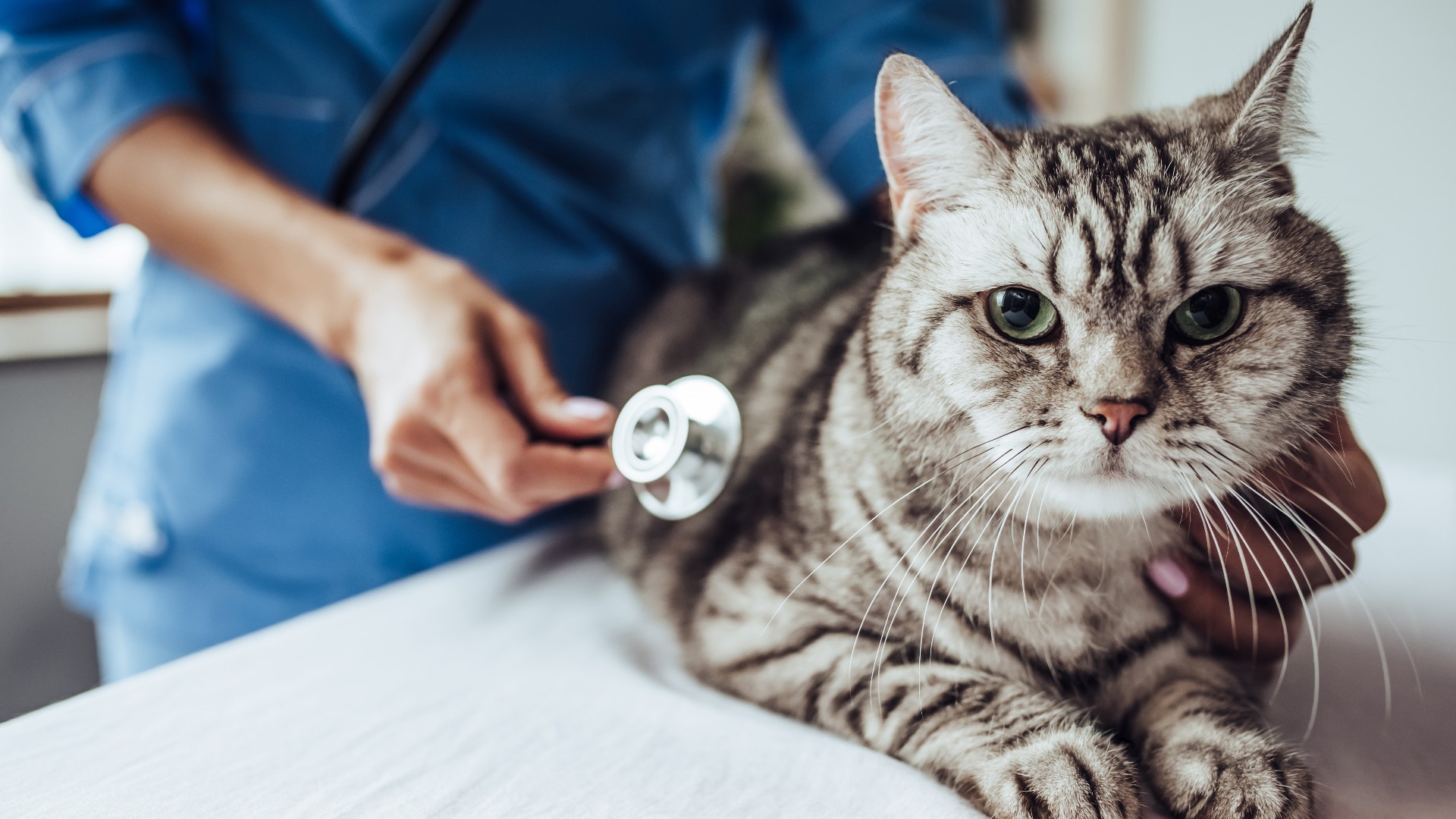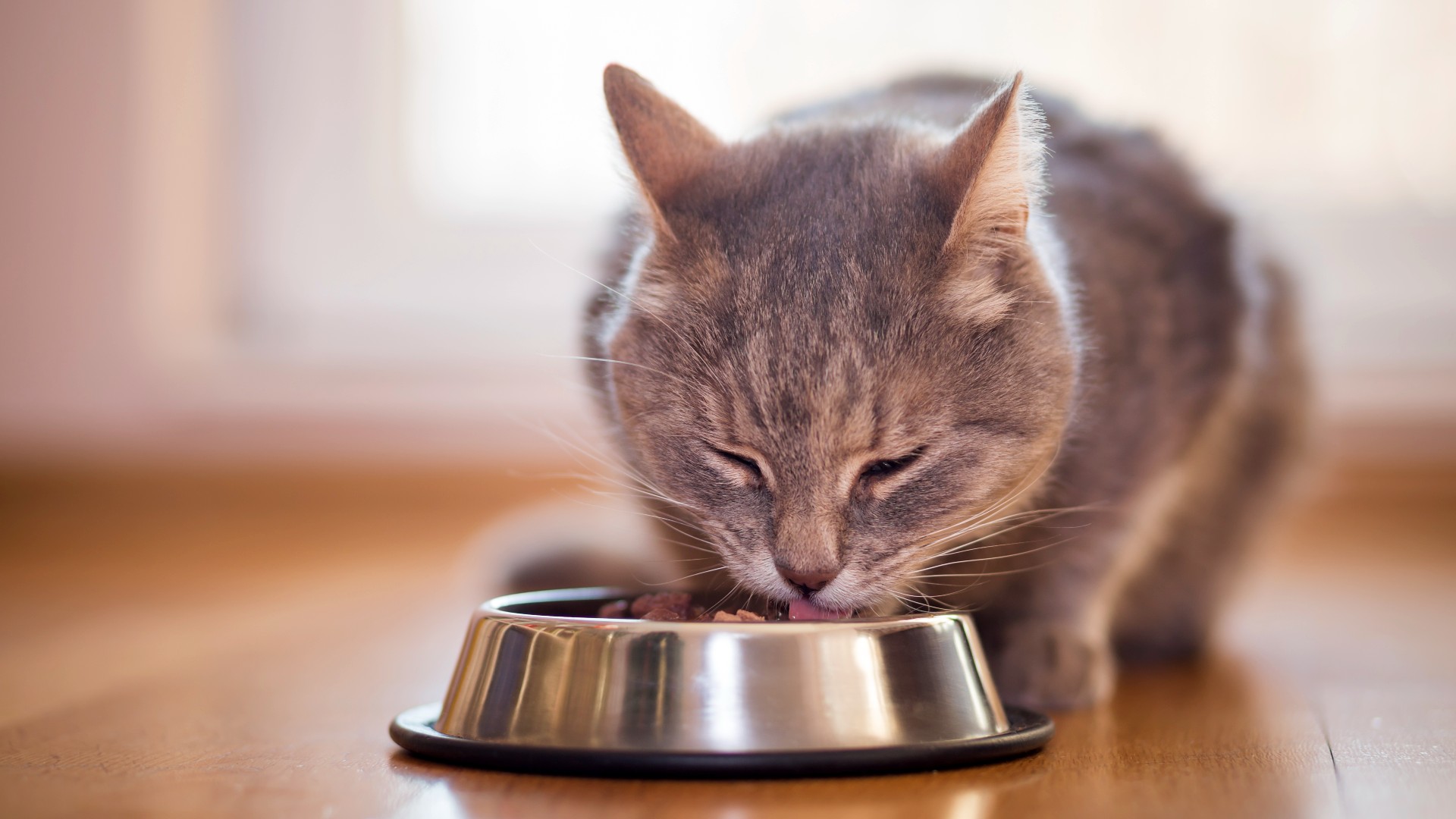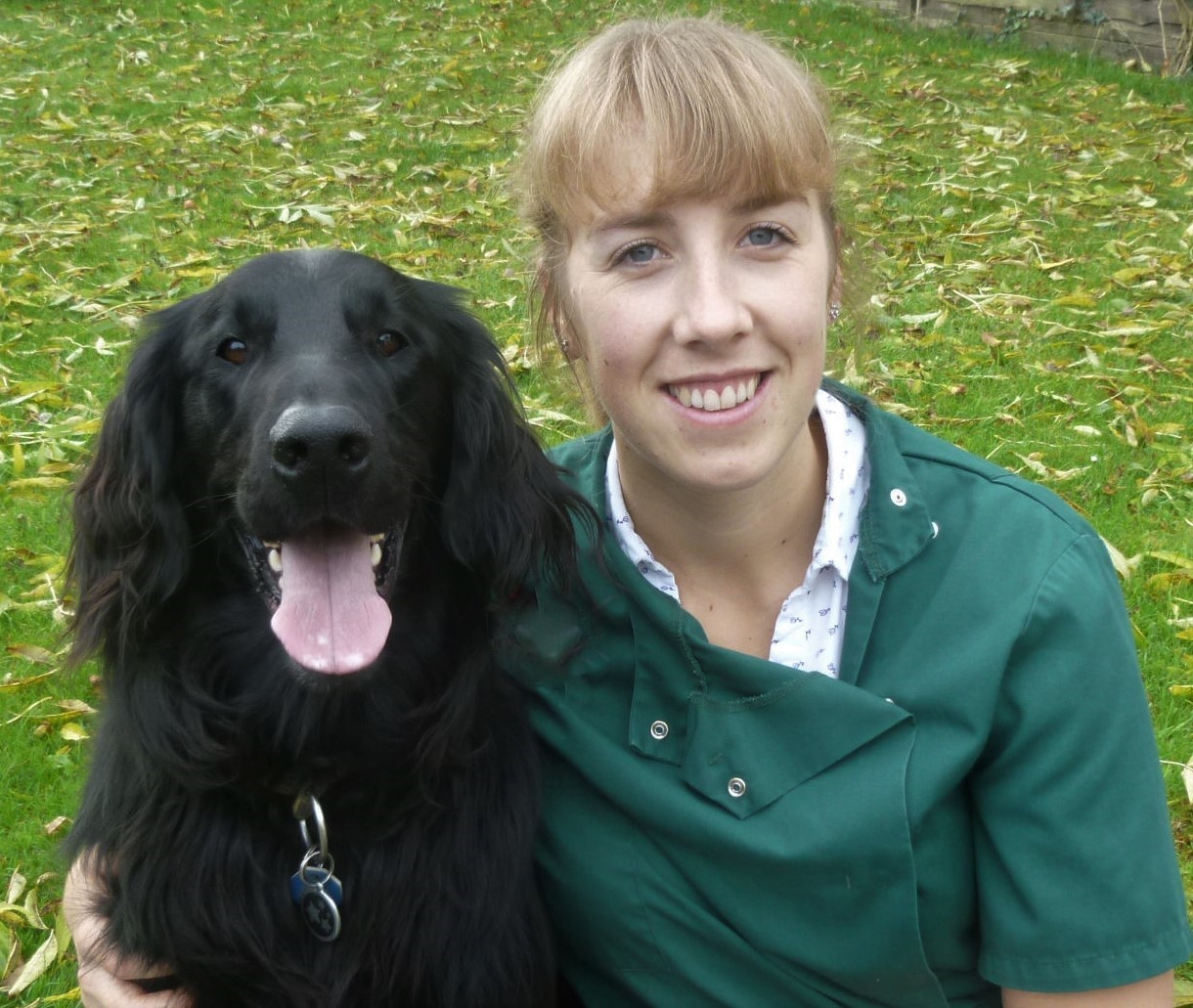Acid reflux in cats: Vet's guide to symptoms and treatment
Is acid reflux in cats a serious problem? Our vet explores how you can help your pet

Can you get acid reflux in cats? The answer is yes! A form of acid reflux does exist called gastroesophageal reflux disease.
Many people also suffer from acid reflux, often taking over the counter medications to ease the burning sensation caused by acid creeping up the oesophagus.
But how can we tell if our furry friend is suffering from a similar complaint? Sadly, it can go unnoticed when it’s mild, only being recognised in more severe or chronic (ongoing) cases.
Let’s explore this condition and what you should look out for.
- Cat throwing up white foam: A vet's guide to causes and treatment
- What to do if your cat is throwing up
- Do anti-vomit cat bowls work?
What is acid reflux in cats?
Acid reflux is also known as gastroesophageal reflux disease (GERD). It is a chronic, longstanding issue that occurs when acid flows up the oesophagus (food pipe) instead of remaining in the stomach. This irritates the lining of your cat’s oesophagus creating a condition called oesophagitis, which causes pain and difficulty swallowing.
In mild cases, it is like heartburn that many people experience at one time or another. But cats can’t tell us if they are feeling a burning sensation and so it often continues unchecked, getting more severe over time. Erosions can occur to the lining of the oesophagus, leading to severe pain, difficulty swallowing and even secondary infections.
Symptoms of acid reflux in cats
Symptoms of acid reflux in cats include:
- Vomiting
- Regurgitation (bringing up food undigested)
- Nausea (excessive lip licking and drooling)
- Signs of pain like crying and meowing
- Difficulty swallowing
- Coughing
- Discharge from the nose or sneezing
- Reduced appetite
- Weight loss
- Fever
Causes of acid reflux in cats
Some of the underlying causes of gastroesophageal reflux and oesophagitis in cats can include:
- Anaesthesia, causing relaxation of the oesophageal sphincter muscles
- Drugs that relax the oesophageal sphincter (e.g. atropine and acepromazine)
- Conditions that cause vomiting can contribute of which there are many (eg. foreign bodies and inflammatory bowel conditions)
- Cancer
- Congenital issues (issues the animal is born with) such as a hiatal hernia
When to visit your vet

It is a good idea to visit your vet if your cat is showing any of the symptoms of acid reflux that we described previously. In many cases it may just be a simple stomach upset that is causing your cat’s problems that will respond to a short course of symptomatic treatment.
If the signs have been longstanding though then your cat may need further investigation and more prolonged treatment. This is particularly the case if they are losing weight, showing signs of pain or if they are having difficulties swallowing.
Diagnosing acid reflux in cats
Your vet will begin by examining your cat looking at any weight changes, any signs of abdominal pain and checking their temperature. If your cat has mild symptoms, then your vet may suggest some medication and monitoring initially.
However, if there are signs of a long-standing issue then they may recommend further tests to try and get a definitive diagnosis and rule out other diseases.
Blood samples may be taken initially to check your cat's organ function and get a picture of your cat’s overall health. Diagnostic imaging is then advised, with x-rays being a good starting point to get an overview of your cat’s abdomen.
Endoscopy is the tool of choice to explore the condition further, however. This involves a small camera being passed down the oesophagus to view what is going on.
Damage to the oesophagus can be assessed as well as any underlying causes such as a foreign body or cancer issue. Fluoroscopy can also be useful (which is like a moving x-ray image) to see how the oesophagus performs when swallowing food.
How to treat acid reflux in cats
Mild cases may not require treatment and could resolve by themselves. However, if the condition is long-standing and your cat is showing symptoms then medical treatment is required.
This usually involves medication to reduce gastric acidity (e.g. famotidine or omeprazole), drugs to improve the sphincter muscle tone at the bottom of the oesophagus and increase the rate that the stomach empties (e.g. metoclopramide or cisapride) and pain relief. If your cat has a hernia or other congenital condition then surgery may be advised.
Changes in diet may need to be made as well to help in the recovery from acid reflux. Your vet may recommend feeding soft and easy to digest food (low in fat and fibre).
Your cat should be fed little and often throughout the day - the best anti-vomit bowls for cats can be useful in getting your moggy to slow down their eating speed at mealtimes.
How to prevent acid reflux in cats
It is hard to prevent your pet from developing acid reflux in the first place, as it is usually due to an underlying condition or as a side effect from medications. However, if you follow your vet’s advice you can help to control your cat’s acid reflux and reduce the associated oesophagitis.
Are there any natural remedies for acid reflux in cats?

A change in diet can be helpful when managing acid reflux in cats, but many will require prescription medications in addition to this.
It is best to follow your vet’s advice and treatment plan rather than trialling natural or home remedies. At best you could waste your money, at worst you could cause your cat unnecessary discomfort by not treating them with appropriate medications.
Conclusion
If you think your cat is showing signs of acid reflux then you should get him checked out by your vet. If left untreated the condition could worsen over time leading to more serious damage to your cat’s oesophagus. The sooner you get your pet seen the sooner he can start feeling more comfortable again.
PetsRadar Newsletter
Get the best advice, tips and top tech for your beloved Pets
Rebecca is a veterinary surgeon who graduated in 2009 from the Royal Veterinary College in London. She has a wealth of experience in first opinion small animal practice, having done a mixture of day-to-day routine work, on-call emergency duties and managerial roles over the years. Rebecca enjoys medicine in particular and she is proud to have recently achieved a BSAVA postgraduate certificate in small animal medicine (with commendation).
She writes on various feline and canine topics, including behavior, nutrition, and health. Outside of work and writing she enjoys walking her own dog, spending time with her young family and baking!

